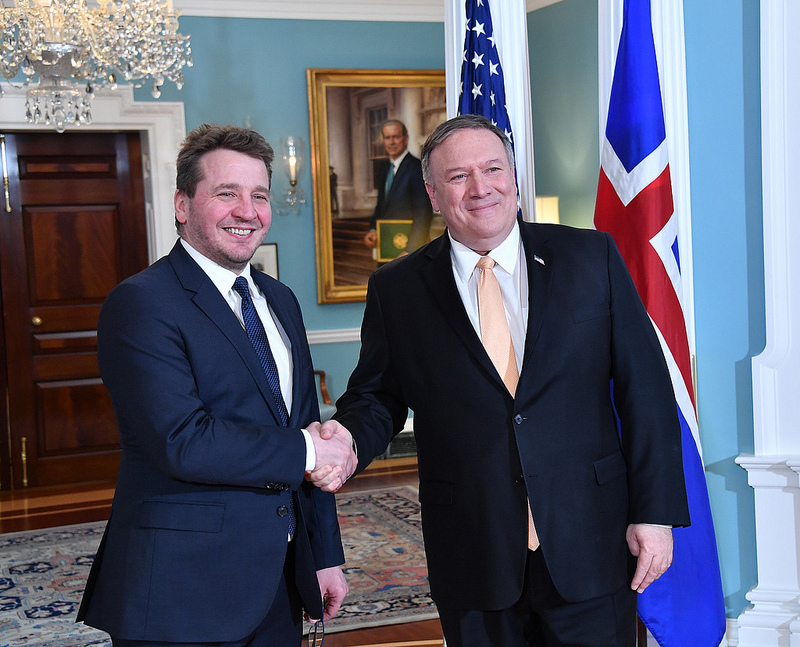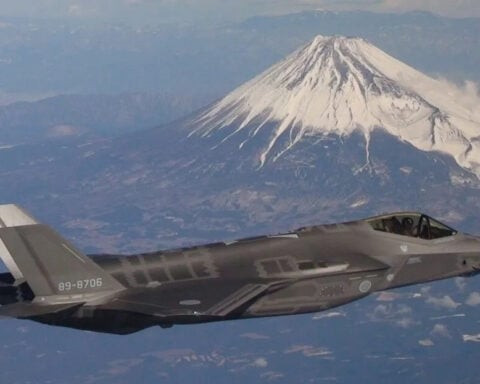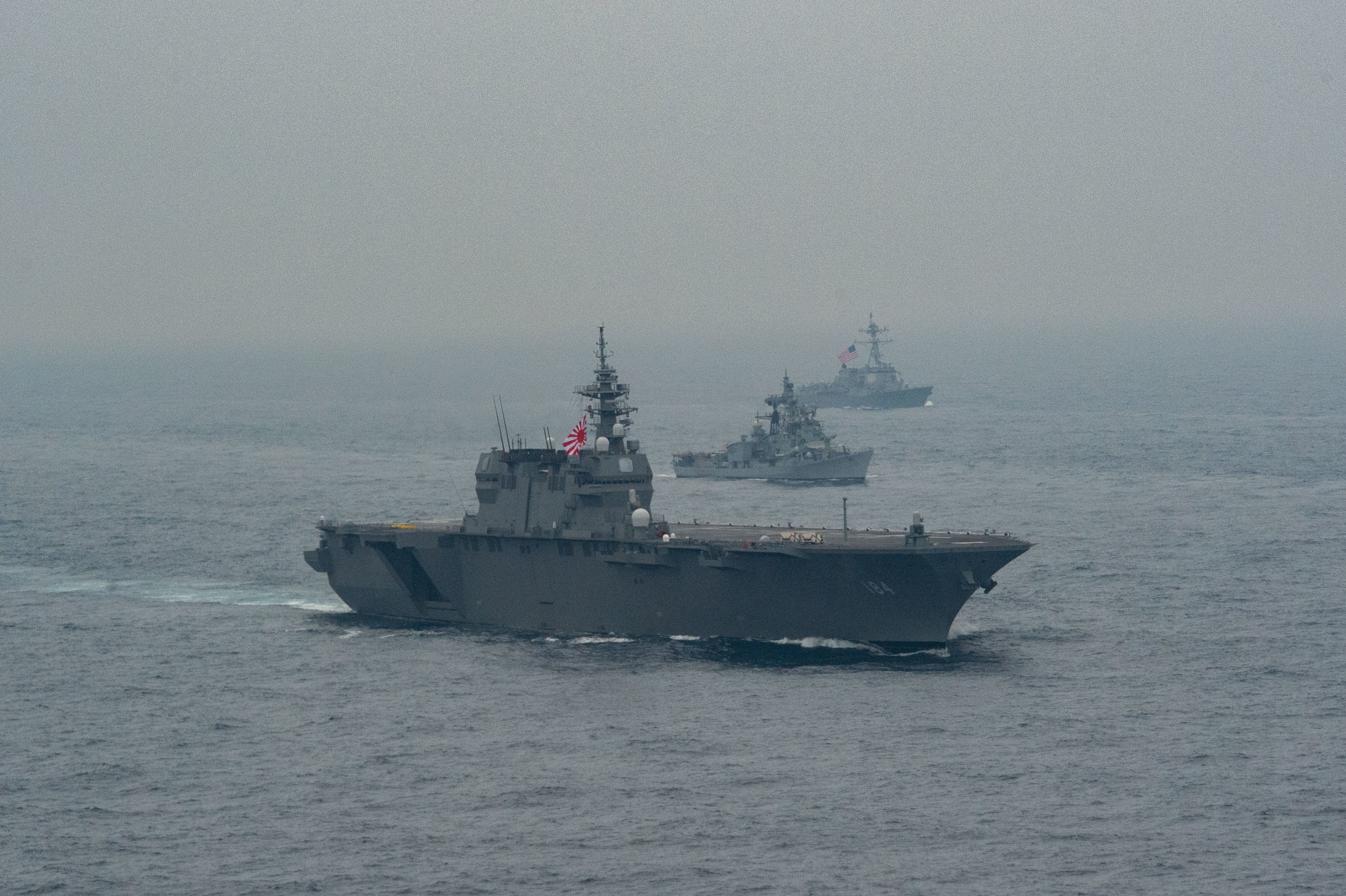
Secretary of State Mike Pompeo’s recent visit to Iceland and last year’s Trident Juncture joint military exercise in the High North send a “clear signal” to the Kremlin that “we stick together,” Iceland’s foreign minister told a Washington think tank audience Thursday.
Thor Thordarson, speaking at the Woodrow Wilson Center, said the two events were important because they showed NATO alliance commitment to defend allies “no matter where they are.”
With its strategically important location in the North Atlantic and no armed forces of its own, Thordarson said Pompeo’s visit showed the Americans “are not going to forget their friends” in Iceland and that the major multinational exercise demonstrated “we need to be prepared for everything” if deterrence fails.
Almost as soon as the United States abruptly pulled Air Force units off Iceland – a small island nation with a population of just over 300,000 and only two coast guard vessels for home-waters defense – in 2006, Moscow stepped up its submarine activity and probing of Icelandic airspace with its long-range patrol aircraft and bombers, Thordarson said.
Both activities were reminiscent of the Kremlin’s Cold War testing of NATO’s response to intrusions along NATO members’ borders with the Soviet Union.
Thordarson said the implications of these Russian moves raised questions about maintaining the openness of the sea lanes of communication between North America and Europe and the security of transatlantic cable networks moving vast stores of financial, diplomatic and security data back and forth between the continents.
The Arctic “is getting more attention in the alliance” and also inside the Trump Administration on economic and trade issues as well.
Assessing Trident Juncture a success, Thordarson added, “those folks [Americans and other allied forces] hadn’t been there for a very long time,” and this past fall’s exercise offered training in an environment they were not familiar with.
He noted earlier and in response to a question that the United States is considering sending surface ships into the Arctic this summer in a demonstration of freedom of navigation in international waters.
“We recognize Russia’s right to defend” itself, but Thordarson warned Moscow, China and others against militarizing the Arctic – a region that has historically been identified with international cooperation. “A military build-up in the High North has to be avoided.”
Russia is the nation with the most territory in the Arctic and has long had military installations in the region. But these facilities have recently been upgraded and more units assigned to them.
Iceland now chairs the eight-member Arctic Council and its coast guard forum. The members, including the United States, have territory in the Arctic. Observer nations looking to the region for possible mineral and resource development, as well as new and shorter transportation lanes for their exports and imports, include China, Japan, Singapore and South Korea.
He said the council itself does not address security issues, but “it is important for dialogue” to reduce tensions among nations. This is especially true now in a rapidly changing environment, particularly as sea lanes open for longer periods of time during the year.
Among its other international efforts, the Arctic Council also promotes international cooperation on search and rescue, disaster response, better telecommunications infrastructure in the region, seabed charting and glacier monitoring – all areas Iceland intends to pursue.
In its role as chair, Thordarson said “sustainable development will be the guiding light” in developing policies for the region over the next two years. Iceland’s views are spelled out in its most recent monograph on the Arctic.
“Races for mineral resources must be avoided,” he added.
Acknowledging disagreements with the Trump Administration over “climate change,” he noted that temperatures there “are rising at more than twice the global rate” in the Arctic. The impact has put “the entire marine ecosystem at risk,” using as an example the impact of melting glaciers on migration and fishery harvest.
“We can expect more dramatic changes to the Arctic environment in the next two decades than in the last 100 years.”
When asked about China, which is looking more and more to the north to expand its trading opportunities and economic reach through a Polar Belt and Road initiative to build infrastructure in the Arctic – much like it did with a liquefied natural gas (LNG) port in Russia – Thordarson said the United States remains Iceland’s major trading partner and investor.
“We know about the security and discussions” in Europe and the U.S. regarding Chinese telecommunications giant Huawei and its connection to the government. He said Iceland is monitoring the push of Belt and Road westward and northward and is being careful about its economic relations with Beijing.
Although Iceland “was the first one [of the NATO countries] to make a free trade deal with them,” he said the size of its business dealings with China “is a similar size as [Iceland’s trade with] Sweden.”





